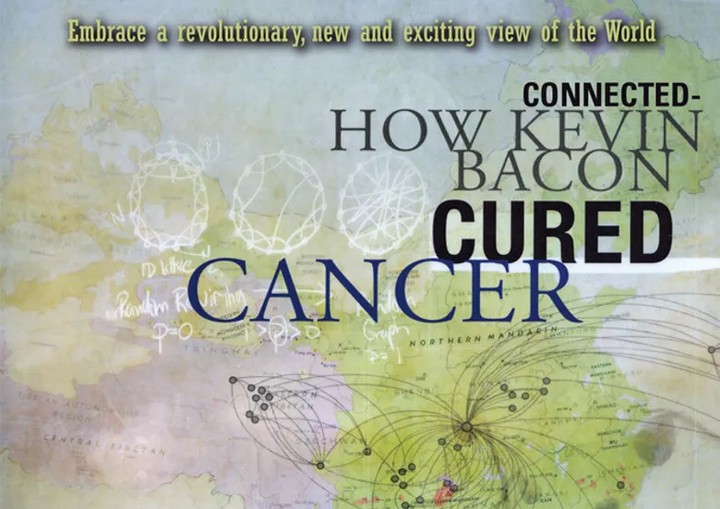Events are never isolated

Events are never isolated
Our environment and how we interact with it helps shape its immediate future. This includes the human interaction each person nurtures with other people throughout a lifetime. Existing physical, economic, social, and emotional conditions that an individual is subjected to early in life are usually the basis for his or her thought processes and mechanisms to cope and react to various stimuli. By further exposing oneself to other individuals outside the usual circles, and by keeping a receptive mindset, can we expect to validate or discard ideas that eventually become part of the values system. Concepts that contribute to the generation of value, maximization of beneficial returns, and the minimization of pain, are accepted and reinforced as a group of people continue to co-exist within the same ecosystem. This cycle of learning and reinforcement allows organizations to develop rules that it can apply to itself in order to sustain benefits that are enjoyed by the parts of the network.
The power of the few (and the Laws of Thermodynamics)
The evolution of networks as observed by Physicist Albert-László Barabási, in connection with the studies conducted by Steven Strogatz and Duncan Watts, showing a tendency to form stronger links with each other at certain concentrations as opposed to an even distribution may have to do with the fact that any phenomena entails the use of energy. Energy is the currency for movement, development, and survival. Just like any finite resource, there is a natural tendency for systems to conserve energy. Networks will follow the path of least resistance, ultimately settling within a particular set of elements or nodes where it can maximize gains in the most efficient way possible. Consider communities where certain individuals are productive in churning out products, services, or something as trivial as insightful information, people will noticeably gravitate towards these productive individuals due to the fact that such products, services, or information are already available, thus limiting the need to expend one’s energy in developing these for their own needs.
Strong networks or hubs take advantage of this concept by reinforcing the fact that efficient use of energy leads to the development of new capabilities, which in turn lead to growth. Expending energy forthe purpose of enhancing the library of actions how an element can respond to its environment allows it to match and eventually surpass the complex conditions it is subjected to. Strong networks naturally know how to communicate, share resources, and function cohesively. The more individual elements of the system provide feedback, strengthening its links within the hub, the more the hub can provide security for the individual. It is for this particular reason that ants form ant bridges when the need arises. The continued existence of the colony depends on the willingness and ability of its constituents to contribut e to its survival.
A scientific approach to self-help
Given how networks evolve, there is now evidence that we humans, have the potential to reach our intended goals with the least amount of energy,or effort. Hubs will have their own identifiable characteristics, wherein it places weights on goals based on its priority. Some hubs are proficient in reacting, maintaining a long term survival mode, adapting and developing resilience against its ever changing environment. Some communities, on the other hand have gained the ability to develop mechanisms to equip itself to make its environment more predictable, providing a sense of control. Control allows for more efficient use of energy and helps compound on its earlier gained abilities. The knowledge that modern human civilization has been established around the year 1500 and that we have gone through numerous periods such as the classical period and the dark ages, it could have been said that humans as a species have learned its lesson by now.
However, detailed studies on network science have only recently begun. It may soon be expected that like the Internet, the awareness of the concept of hubs and interconnectedness will grow exponentially, marking a new period for modern human history. The multiplier effect of sustaining strong, relevant relationships does good for the majority and should be capitalized on. The sooner organizations utilize this information, the sooner society is able to make better use of its resources.
Case in point: the Philippines.
Many Filipinos are discouraged early in trying to achieve their objectives most likely because linear thinking is easier to understand as compared to grasping the concept of the power law. The nonlinear behavior of nature makes it hard to budget the energy required for sustained motivation and tempering of emotions, leading to a defeatist mindset. Being smart about developing networks with hubs outside our own enhances information gain, it helps overcome the fear that life is always a zero-sum game. Capitalizing on what the Filipinos are good at such as being resilient and tolerant, paired with our capability to work with scarce resources makes us good candidates to be productive in areas such as research, content generation, process optimization, resource management, and policy development. Events are never isolated. How we decide to react collectively will ultimately spell out the immediate consequences of our actions. Proper mindful networking with governments and other institutions that are proficient in such fields will allow the Philippines to present itself as a competent and multi - faceted hub, making it a significant player in a highly competitive, complex global environment.
This essay was a requirement under the Network Science class where they were asked to watch Connected: The Power of Six Degrees directed by Annamaria Talas and react to it. This essay has been published with permission from the author, one of my MSDS students. - Prof. E